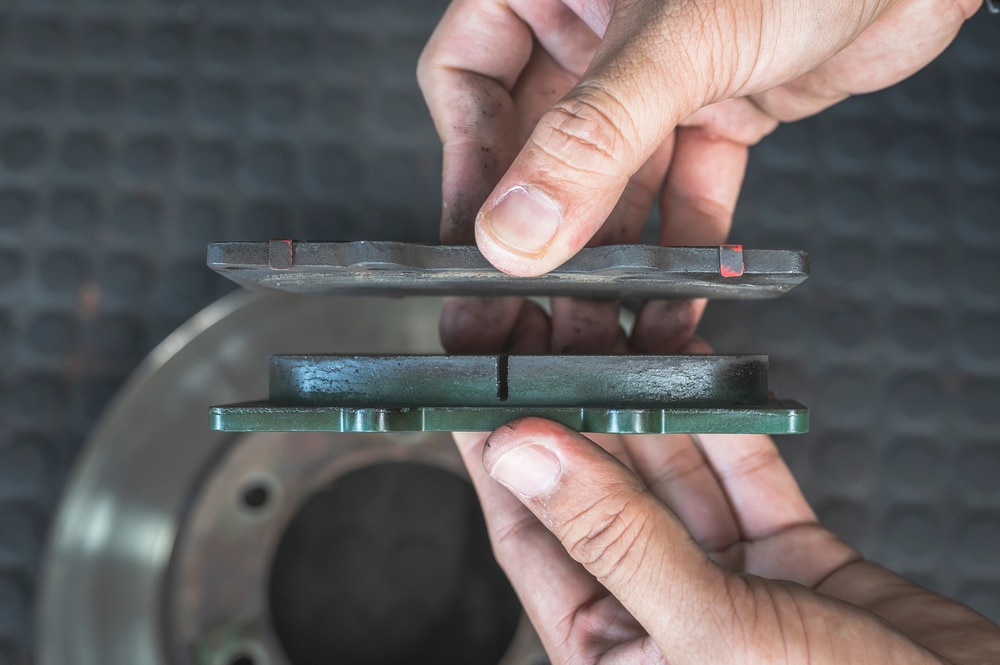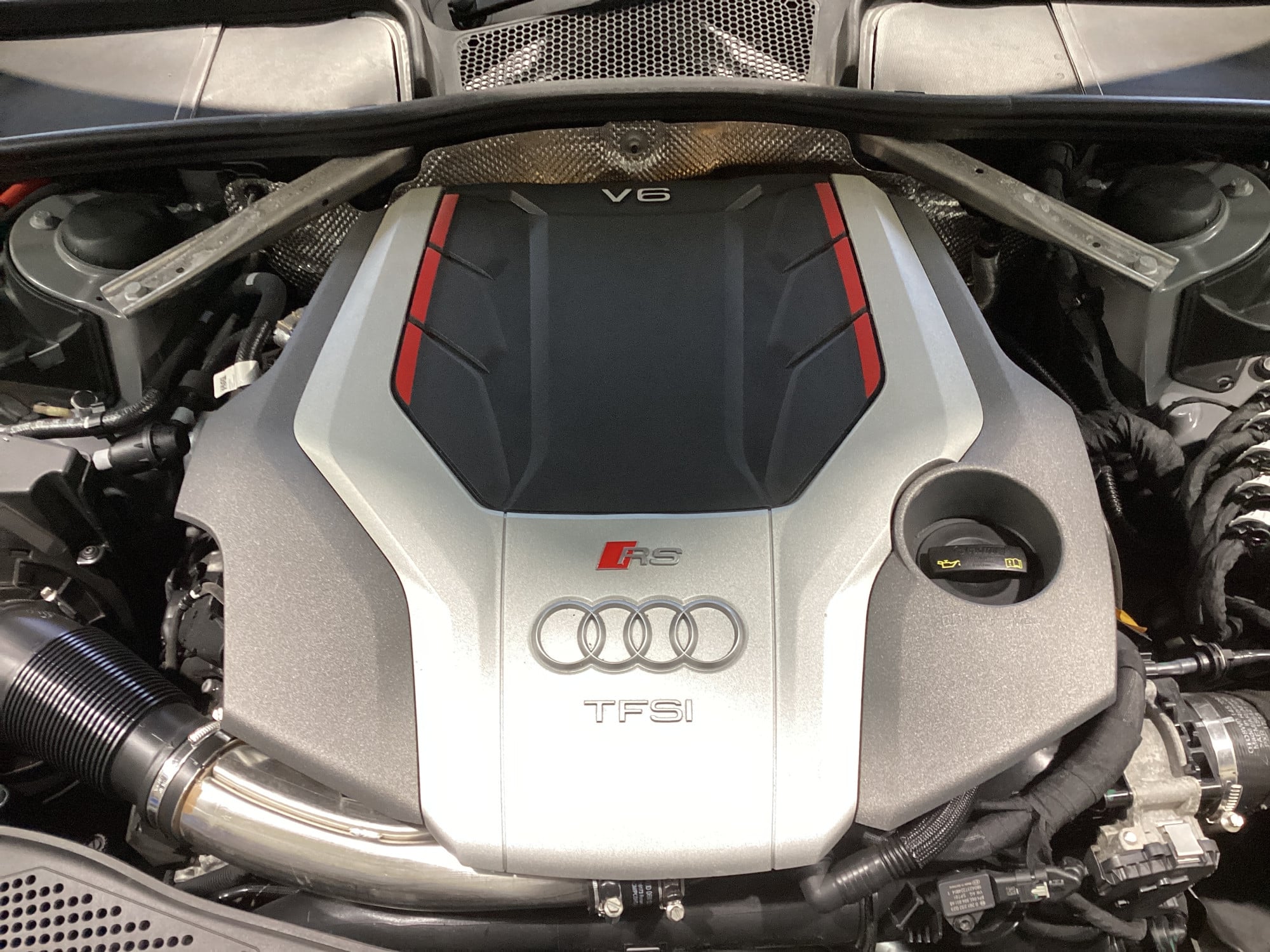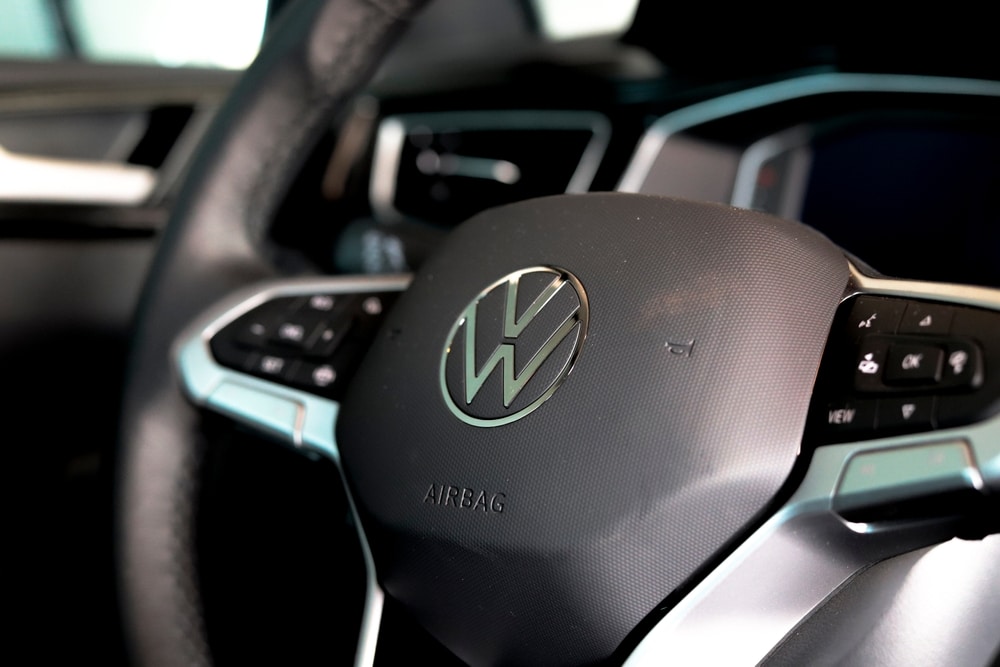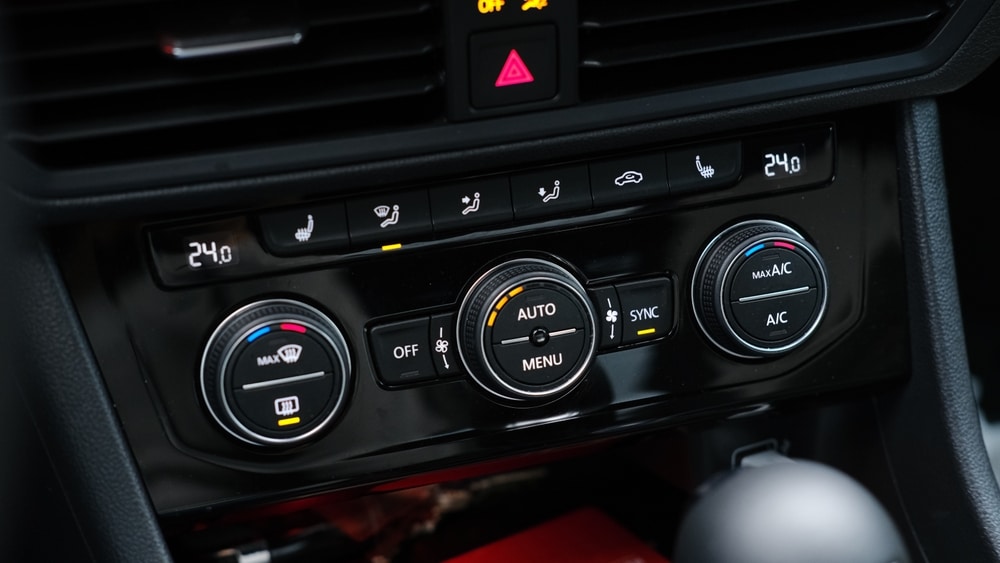Brake Pads
Brake pads are a part most drivers have heard of but rarely think about. That is, until the signs start showing. A noise under braking. A dashboard light. A sudden drop in stopping power.
We’ve put this guide together to help you before these warning signs appear.
At RS Autotechnik in Dursley, we’ve replaced thousands of brake pads. Some just in time. Others left far too long. This blog pulls from that experience to explain how brake pads work, what causes them to wear faster, and the early warning signs you shouldn’t ignore.
Whether you’re driving in Bristol, Tetbury or Gloucester, this is everything you need to know to stay ahead of your braking system—and avoid bigger repairs down the line.
Let’s start with the basics: what do brake pads actually do?
What Brake Pads Really Do When You Stop
Brake pads are the parts that physically slow your car down. They’re fitted inside the brake calliper and are designed to press against the brake discs every time you touch the pedal. (Some vehicles use drums and shoes instead, but the overall principle is the same.)
Here’s what’s actually happening: when you apply the brakes, hydraulic pressure forces the pads onto the rotating brake disc, creating friction. That friction is what slows the vehicle, and it also generates a lot of heat. Good-quality pads are engineered to handle both the pressure and the heat without losing effectiveness.
Each time you brake, a small amount of the pad wears away. That’s exactly how the system is designed to work. But as the pads get thinner, they lose their ability to stop the car quickly and cleanly. If left too long, they can even start damaging the discs.
At RS Autotechnik in Dursley, we check the condition of your brake pads during every service. If they’re worn or close to the limit, we’ll give you clear advice and let you know if action is needed because safety shouldn’t be left to chance.
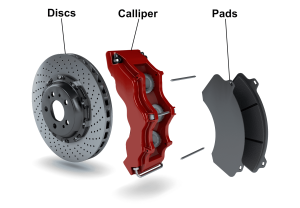
Brake Pad Types and Their Key Differences
Not all brake pads are created equal. The material they’re made from has a major impact on how they perform, how long they last, and how well they work with the rest of your braking system.
At RS Autotechnik in Dursley, we always choose brake pads based on the vehicle manufacturer’s exact specification. That ensures the pads are correctly matched to your car’s callipers, discs and overall braking setup.
Here are the three main types of brake pads we work with:
- Organic (NAO) pads
These are made from non-metallic fibres such as cellulose or aramid, bonded with resin. They’re quiet, cost-effective and suitable for light to moderate driving. However, they wear faster and don’t cope as well with high temperatures. - Semi-metallic pads
Containing steel or copper fibres, these offer better performance and heat resistance. They’re a common choice for everyday use but may create more brake dust and can wear the discs quicker than softer pads. - Ceramic pads
Built from ceramic compounds with copper fibres, these provide stable, quiet, and clean braking. They’re found in many high-performance vehicles and handle heat extremely well, though they tend to cost more.
Using the wrong type of pad can disrupt the balance between pad and disc wear, reduce braking efficiency, and in some cases cause vibration or noise. That’s why we always match the pad to your car’s braking system—and never cut corners.
When Brake Pads Wear Out Sooner Than They Should
Brake pads are designed to wear over time, but sometimes they fade faster than expected. At RS Autotechnik in Dursley, we regularly spot cases where premature wear could have been prevented, simply by addressing the right underlying cause.
Here are the most common culprits:
- Frequent braking in short trips or traffic
Constant stop-start driving, especially in towns or city traffic, means your brake pads are working harder and more often. That extra use builds heat and friction, which accelerates wear. - Calliper faults
If the calliper sticks or doesn’t release properly after braking, the pad can stay in contact with the disc. This leads to constant light contact and uneven wear, which can go unnoticed until performance drops. - Worn or damaged discs
Brake pads rely on smooth discs to wear evenly. If the disc surface is warped, scored or affected by corrosion, the pad can’t make clean contact. That results in poor braking and early pad failure. - Incorrect pad type
Pads that don’t match the manufacturer’s specification may not wear in sync with your braking system. They might stop the car, but they can wear out faster or cause imbalance, especially under pressure. - Debris or moisture build-up
Road dirt, grit and water can get lodged around the brake components, particularly in winter. Over time, this can lead to uneven pad wear or even cause the pad material to separate from its backing plate.
At RS Autotechnik, we always inspect the full braking system, not just the pads. That allows us to catch the root causes early and help you avoid recurring problems or unnecessary repairs.
The Early Signs That Point to Worn Brake Pads
Brake pads usually give you a few clear warnings before they become a serious issue. Spotting these signs early means you can replace them before safety is compromised—or before you end up needing new discs too.
Here’s what to look (and listen) for:
Squealing or screeching when braking
Most brake pads include a built-in wear indicator. It’s a small metal tab that makes a high-pitched noise when the pad material gets low. If you hear this regularly, it’s doing its job—telling you it’s time to act.
Grinding sounds
A deep, rough grinding noise when you brake could mean the pad material has completely worn away, and the metal backing is now contacting the disc. At this point, performance is seriously affected, and disc damage is highly likely.
Brake warning light
Some vehicles have electronic sensors that trigger a dashboard light when the pads are close to their limit. This light shouldn’t be ignored. It means your braking system needs immediate attention.
Even if your car still seems to brake normally, these signs are telling you the pads may be on their way out. If something feels different, or it’s just been a while since your last check call, RS Autotechnik in Dursley. We’ll give your braking system a full inspection and let you know exactly where you stand.
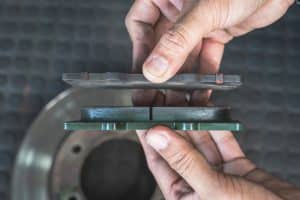
The Dangers of Putting Off Brake Pad Replacement
A small sound. A light on the dashboard. A slight change in how your car feels when stopping. These signs are often easy to ignore, but putting off a brake pad replacement can turn a minor job into a much bigger problem.
Brake pads are made to wear gradually, but once the friction material runs low, the wear accelerates. If they’re not replaced in time, the metal backing starts to press against the brake discs, creating damage that goes beyond the pads themselves.
At that stage, you may need new discs, potential calliper work, or even repairs to the hydraulic system if heat builds up or fluid starts to degrade. That’s a significant jump in cost and downtime compared to a straightforward pad change.
More importantly, safety takes a hit. Worn pads increase your stopping distance and reduce your car’s ability to respond in an emergency, especially under pressure or in wet conditions.
At RS Autotechnik in Dursley, we’ve seen too many cases where a delay made things worse. If your brake pads are nearing their limit or you’ve spotted any warning signs, book a check today. Acting now could save you from a much more expensive repair and keep your brakes ready when you need them most.
Why Choose RS Autotechnik for Brake Pad Replacement?
Brake pads might be small, but they’re one of the most important safety components on your car. When they’re worn down or incorrectly matched, your entire braking system is affected, and so is your ability to stop when it matters most.
At RS Autotechnik in Dursley, we carry out brake pad replacements to the highest standard. We use only genuine or OEM-approved parts, fitted exactly to your vehicle’s manufacturer specification, and we check the entire braking system for faults or uneven wear.
Here’s what you can expect from us:
- A full brake system inspection—not just the pads
- Brake pads fitted to the correct manufacturer specification
- A 12-month parts and labour guarantee for peace of mind
- A free courtesy car so you’re never off the road while we work
Whether you’re based in Dursley, Bristol, Tetbury or Gloucester, we’re here to keep your brakes in top condition and your vehicle safe to drive.
We have a {{average-rating}} star Google rating from {{review-count}} satisfied customers.
Call 01453 796345 today to book your brake check or replacement. At RS Autotechnik, we never take chances with your safety.
